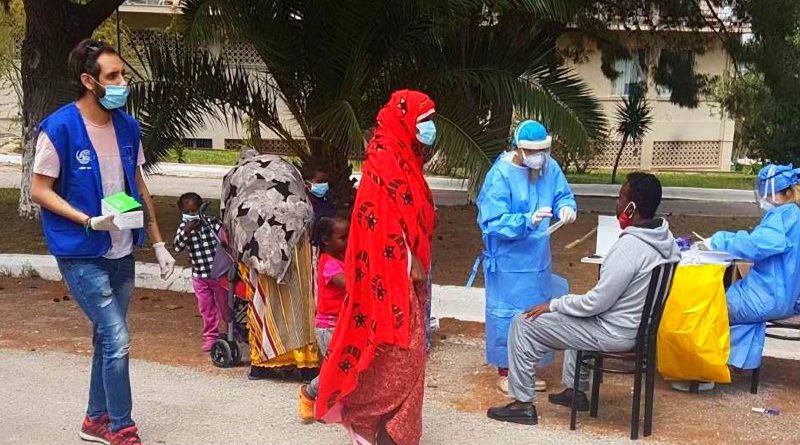Few ventilators, little cash: Sudan braces for coronavirus test
Khartoum (Reuters) – With just a few hundred ventilators and international aid slow to materialise, Sudan’s fledgling government knows it has an uphill battle against a coronavirus pandemic that has brought far richer countries to a standstill.
The number of cases of the novel coronavirus is still small and doctors say they are able to cope so far, but they are concerned that a healthcare system that has been underfunded for decades will not be able to cope if numbers spike.
That is an added challenge for the military-civilian transitional government, which is already trying to balance reforms with expectations among Sudan’s 40 million people who want change after long-time leader Omar al-Bashir was toppled.
“We inherited a collapsed healthcare system and an economy in crisis from the former regime, and our only choice is precautionary measures to stop the spread of the epidemic in the country,” Health Minister Akram Ali Altom told Reuters.
Sudan has increased its health budget by 200%, but Altom said aid was still needed: $120 million to fight the new virus and $150 million to cover medicines until June.
Almost all of Sudan’s 140 coronavirus cases, including 13 deaths, have been in the capital Khartoum, now under a three-week lockdown.
But some experts estimate that may represent only 2% of those infected, as patients tend to show up only when really sick and limited resources hamper widespread testing.
A relatively young population might keep the burden lower than in some other countries, however.
The health ministry plans to prepare 1,433 beds for COVID-19 patients, according to a U.N. report.
Health ministry sources said the country only has about 300-400 ventilators shared among all patients, although doctors say some 200 more are on the way.
“On a normal day in Sudan you can’t find a ventilator. It’s going to be a disaster. Those who have immunity will live, and those who don’t will have to pray,” said Abdelhameed Elbushra, a doctor at the main treatment facility in the Jabra neighbourhood of Khartoum.
Transition
The pandemic comes as the civilian Prime Minister Abdalla Hamdok works to undo Bashir’s legacy, including galloping inflation, corruption, and insurgencies.
He has struggled to end lines for bread and fuel amid a spiraling economy, which the International Monetary Fund (IMF) recently projected would contract by 7.2% this year.
“The government is in a position (where it has) to make very difficult decisions when they don’t have that sense of security,” said Nada Abdelmagid, assistant professor at the London School of Hygiene and Tropical Medicine.
International donors have held back, demanding a reform plan and the lifting of fuel subsidies costing about $3.5 billion a year.
Potential donors from the West and the Gulf have postponed from April to June a “Friends of Sudan” economic conference, and with the pandemic there could be more delays.
The European Union and United States have pledged 80 million euros ($86.62 million) and $13.7 million respectively to aid the coronavirus efforts. Two shipments of supplies have arrived from Chinese billionaire Jack Ma.
But importing equipment and medicines has been difficult as countries prioritize their own needs, Altom has said.
Millions of people living in displacement camps and makeshift housing – legacies of armed conflicts in the west and south of Sudan during Bashir’s rule – are particularly vulnerable as social distancing is difficult there, said Julia Paulsson, head of Medecins Sans Frontieres in Sudan.
Young Doctors
Much of the burden falls on young doctors like Elbushra, who have been working for little to no pay for years.
Under Bashir, thousands of doctors left to work abroad.
The new government has made improvements, but “the healthcare system did not get its share of the revolution,” said Mohieldin Hassan, another resident doctor active in the coronavirus effort.
Some doctors say they have been attacked by patients’ families who blame them for a failing healthcare system, something the government is trying to stamp out with strict penalties.
A shortage of masks and gowns has meant that doctors are stuck in their gear for hours.
“The goggles steam up and you can’t see. Some doctors go in for an hour and they get so uncomfortable they have to leave,” said Elbushra.
Yet he added: “If people are going to die, then I will be a soldier carrying a rifle against a machine gun. But I’m not going to sit at home.”



